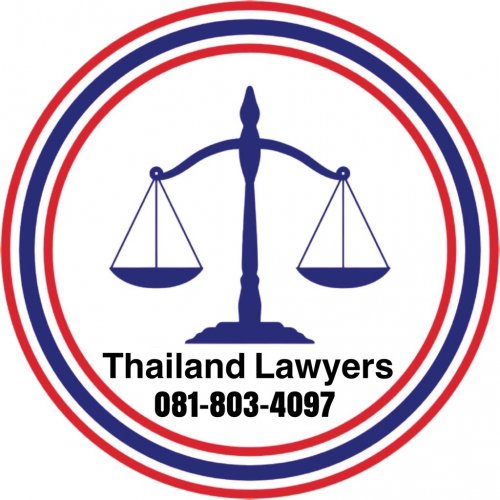Best Employment & Labor Lawyers in Pattaya
Share your needs with us, get contacted by law firms.
Free. Takes 2 min.
List of the best lawyers in Pattaya, Thailand
Thailand Employment & Labor Legal Articles
Browse our 3 legal articles about Employment & Labor in Thailand written by expert lawyers.
- Thailand Wrongful Dismissal: Fired Without Warning Guide
- Thailand is an employee-protective jurisdiction: most employees are covered by the Labour Protection Act and cannot be dismissed at will without correct procedure and payments. Written employment contracts are strongly recommended, but even informal or verbal arrangements can create full employee rights under Thai law. Key money items include minimum... Read more →
- Looking Ahead to Proposed Thai Labor Law Changes in 2025
- The Thai government is considering significant legislative reforms for 2025, with the goal of improving employee welfare and creating a more equitable labor market. Firstly, let’s take a brief look at Thailand’s current labor laws, then we will go into the potential future changes.What are the Current Labor Laws in... Read more →
- Thailand Employment Law: Essentials for Hiring and Retaining Talent
- In a world that is constantly changing, Thailand has become a very attractive place for companies who want to grow or start up in the lively South East Asia area. However, entering this beautiful landscape requires great knowledge of Thai employment laws which are a maze that can confuse even... Read more →
About Employment & Labor Law in Pattaya, Thailand
Employment and labor law in Pattaya, Thailand, is governed by the overarching legislative framework of Thai labor laws. This legal landscape aims to balance the rights and responsibilities of both employers and employees, providing protection against unfair treatment while ensuring that businesses can operate efficiently. The laws cover various aspects, including employment contracts, wages, working hours, occupational safety, and termination of employment. As a bustling tourist destination, Pattaya has a diverse workforce, contributing to its vibrant economy and necessitating an understanding of these legal provisions to ensure compliance and harmonious labor relations.
Why You May Need a Lawyer
There are several situations where you might require legal assistance in employment and labor matters in Pattaya:
- Disputes over wages, overtime, and employment benefits.
- Instances of unfair dismissal or wrongful termination.
- Issues related to workplace discrimination or harassment.
- Assistance with negotiating employment contracts or severance packages.
- Navigating labor union negotiations or collective bargaining agreements.
- Understanding compliance with local employment laws and regulations.
Seeking the help of a lawyer ensures that your rights are protected and that you achieve the best possible outcome in disputes or negotiations.
Local Laws Overview
The key aspects of local employment and labor laws in Pattaya, Thailand include:
- **Employment Contracts**: Must adhere to the Thai Labor Protection Act, detailing job descriptions, working hours, wages, and conditions.
- **Working Hours**: Generally limited to 48 hours a week, with no more than eight hours per day. Overtime pay applies beyond these hours.
- **Minimum Wage**: As regulated by the government, which may vary by region and sector, ensuring fair living standards for employees.
- **Employee Benefits**: Includes provisions for annual leave, sick leave, maternity leave, and severance pay as stipulated by law.
- **Health and Safety**: Employers are required to provide safe working conditions, adhering to specific industry safety standards.
- **Termination**: Must be conducted in accordance with legal requirements, including proper notice periods and severance payments.
Frequently Asked Questions
What are my rights if I’m terminated without cause?
If you are terminated without cause, you are entitled to severance pay, which is calculated based on your length of service and as per Thai labor laws.
How is overtime calculated in Thailand?
Overtime is generally calculated at a rate of 1.5 times the normal hourly wage for work performed beyond the standard working hours.
Can my employer legally reduce my salary?
Your salary can only be legally reduced with your consent, except under certain conditions like layoffs where specific legal processes are followed.
Is it mandatory for employers to provide health insurance?
Employers must enroll employees in the social security system, which provides basic health and welfare benefits, but separate health insurance is not mandatory unless specified in employment contracts.
What should I do if faced with workplace harassment?
Document the incidents and report them to your HR department or relevant authorities. Seeking legal advice would also help in understanding your rights and potential remedies.
Are foreign workers subject to the same labor laws as Thai nationals?
Yes, foreign workers are generally subject to the same labor laws. However, their employment contracts and work permits may have additional conditions.
Are there laws protecting against workplace discrimination in Pattaya?
Yes, workplace discrimination based on gender, race, or disability is prohibited under Thai law, and employers must maintain non-discriminatory practices.
How can labor unions help in negotiating better employment terms?
Labor unions can represent employees in collective bargaining with employers, aiming for improved working conditions, wages, and benefits.
What is the legal procedure for resolving disputes between an employer and employee?
Disputes can be resolved through mediation, arbitration, or by filing a complaint with the Labor Protection Officer or Labor Court if necessary.
How is a probation period regulated under Thai Employment Law?
Probation periods are not clearly defined in the labor laws, but they are typically set for no longer than 119 days. During this period, employment can usually be terminated without the need for severance pay.
Additional Resources
- **Department of Labor Protection and Welfare**: Provides guidelines, advice, and dispute resolution for labor matters (Contact the local branch for region-specific inquiries).
- **Social Security Office**: Manages employee health and welfare benefits under Thailand’s Social Security system.
- **Labor Courts**: For legal proceedings related to labor disputes.
- **Thai Bar Association**: Offers access to professional legal counsel in various fields, including labor law.
Next Steps
If you need legal assistance in employment and labor matters in Pattaya, consider the following steps:
- **Consult a Lawyer**: Seek advice from a qualified labor lawyer to discuss your situation and understand your legal rights and options.
- **Gather Documentation**: Collect all relevant records, including contracts, correspondence, and any evidence related to your employment issue.
- **Contact Relevant Authorities**: Depending on the issue, reaching out to government agencies like the Department of Labor Protection and Welfare can provide guidance.
- **Explore Mediation**: Consider mediation as a means to resolve disputes amicably before proceeding with more formal legal channels.
Engaging with a professional will provide clarity and direction, ensuring that your employment and labor concerns are addressed effectively under Thai law.
Lawzana helps you find the best lawyers and law firms in Pattaya through a curated and pre-screened list of qualified legal professionals. Our platform offers rankings and detailed profiles of attorneys and law firms, allowing you to compare based on practice areas, including Employment & Labor, experience, and client feedback.
Each profile includes a description of the firm's areas of practice, client reviews, team members and partners, year of establishment, spoken languages, office locations, contact information, social media presence, and any published articles or resources. Most firms on our platform speak English and are experienced in both local and international legal matters.
Get a quote from top-rated law firms in Pattaya, Thailand — quickly, securely, and without unnecessary hassle.
Disclaimer:
The information provided on this page is for general informational purposes only and does not constitute legal advice. While we strive to ensure the accuracy and relevance of the content, legal information may change over time, and interpretations of the law can vary. You should always consult with a qualified legal professional for advice specific to your situation.
We disclaim all liability for actions taken or not taken based on the content of this page. If you believe any information is incorrect or outdated, please contact us, and we will review and update it where appropriate.
Browse employment & labor law firms by service in Pattaya, Thailand
Pattaya, Thailand Attorneys in related practice areas.












